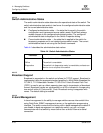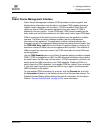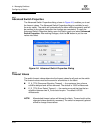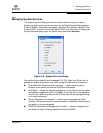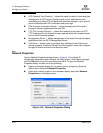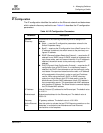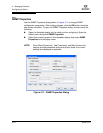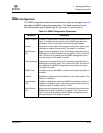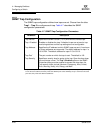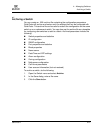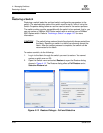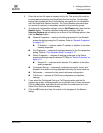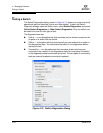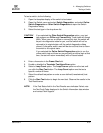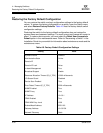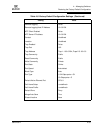
4 – Managing Switches
Configuring a Switch
4-26 59234-03 A
S
4.6.6.2
SNMP Trap Configuration
The SNMP trap configuration defines how traps are set. Choose from the tabs
Trap1 – Trap 5 to configure each trap. Table 4-7 describes the SNMP
configuration parameters.
Table 4-7. SNMP Trap Configuration Parameters
Parameter Description
Trap Version Specifies the SNMP version (1 or 2) with which to format traps.
Trap 1 Enabled Enables or disables the trap. If disabled, traps are not sent to trap
monitoring stations and the trap settings are not configurable.
Trap Address
1
1
Trap address (other than 0.0.0.0) and trap port combinations must be unique. For example, if trap 1 and trap
2 have the same address, then they must have different port values. Similarly, if trap 1 and 2 have the same
port value, they must have different addresses.
Specifies the IP address to which SNMP traps are sent. A maximum
of 5 trap addresses are supported. The default address for trap 1 is
10.0.0.254. The default address for traps 2–5 is 0.0.0.0.
Trap Port
1
The port number on which the trap is sent. The default is 162.
Trap Severity Specifies a severity level to assign to the trap. Open the drop-down
list and choose a level. The Trap 1 Enabled option on the SNMP
Properties dialog must be enabled to access this drop-down list.
Trap severity levels include Unknown, Emergency, Alert, Critical,
Error, Warning, Notify, Info, Debug, and Mark



